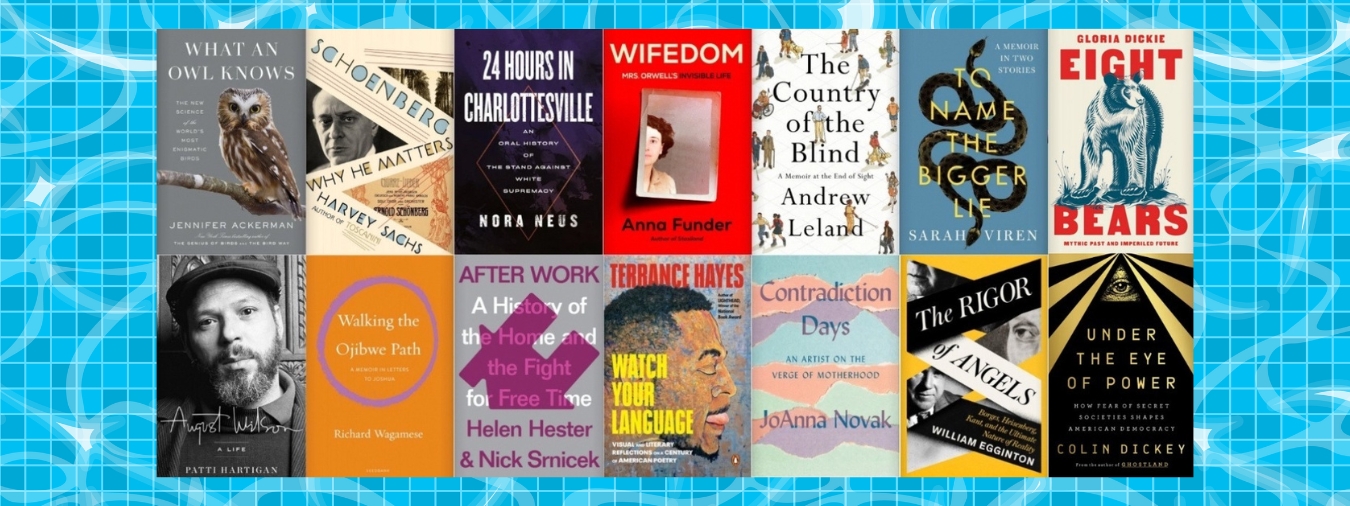
25 Nonfiction Books You Need to Read This Summer
Because Novels Are Just Made-Up
While novels generally get all the love when it comes to summer reading, there’s more to cracking a book on the beach or by the pool than mere diversion (you know novels are made up, right?). That’s why we’ve pulled together this list of 25 books we think will both edify and entertain you as you await the return of sweater weather.
*
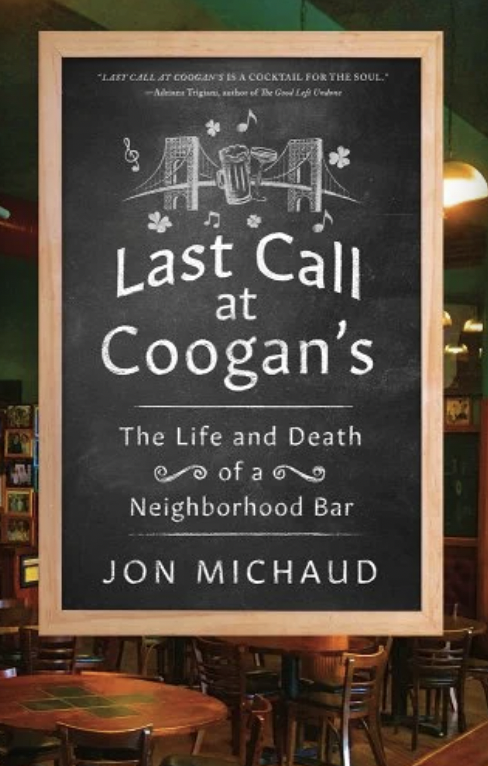
Jon Michaud, Last Call at Coogan’s: The Life and Death of a Neighborhood Bar
St. Martin’s Press, June 6
Last Call at Coogan’s started with a 2018 New Yorker article: it was meant to be the story of a beloved bar in Washington Heights and the people who came together to save it from a disastrous rent hike. But Coogan’s, it turned out, was bigger than that chapter of its history. Michaud spent years with Coogan’s owners and regulars, collecting their stories and bringing a novelist’s sharp eye to the task of telling a larger story: of the city’s evolution, of the human dramas passing through that stretch of uptown Manhattan, and of the unique space for communal living offered up by a true New York City saloon. His new book is a moving and worthy portrait of the now shuttered bar and a fascinating meditation on what makes a neighborhood, and what keeps it bound.
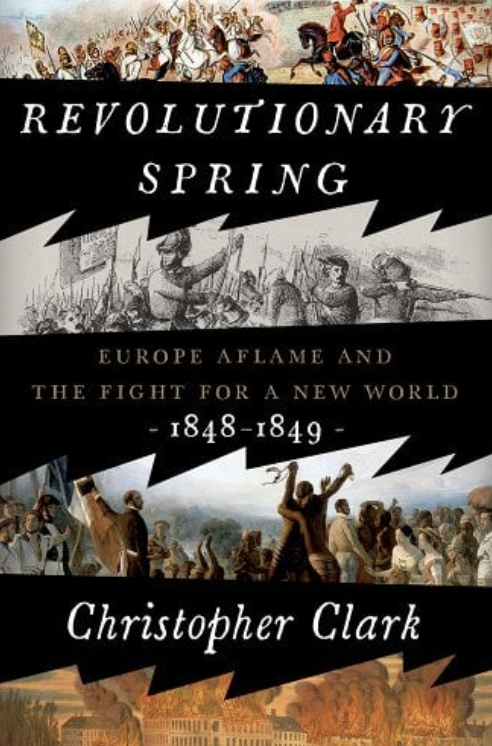
Christopher Clark, Revolutionary Spring: Europe Aflame and the Fight for a New World, 1848-1849
Crown, June 13
The American and French and Russian revolutions tend to get all the historical love as epoch-changing moments, but what about 1848? This was the year most of Europe was convulsed by revolutionary thinking, a wave of radical rebellion that ushered in so many of the isms that define contemporary political thought, from nationalism to liberalism to socialism. If 1992 was the “end” of a particular history, then 1848 was its beginning—and Cambridge historian Christopher Clark is the perfect person to tell that story.
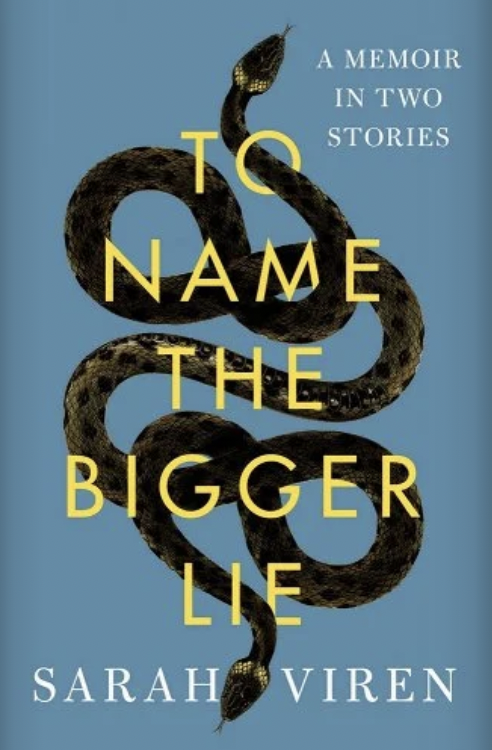
Sarah Viren, To Name the Bigger Lie: A Memoir in Two Stories
Scribner, June 13
You might remember Sarah Viren’s viral New York Times essay about the false sexual harassment allegations that derailed a competitive academic job offer—allegations that were eventually traced back to an acquaintance who was also vying for the role. (That the Title IX process meant to protect university students was manipulated so heinously, and potentially ruinously, was complicated further by the fact that the false accuser, a queer man posing as female students, was targeting a lesbian couple.)
What we didn’t learn from the NYT piece was that Viren was simultaneously deep in a book project about truth and conspiracy, inspired by her charismatic high school philosophy teacher who positively influenced the way Viren and her peers thought before revealing himself to be a Holocaust denier. In To Name the Bigger Lie, Viren once again marries the personal with the political in a powerful exploration of truth, doubt, and reckoning.
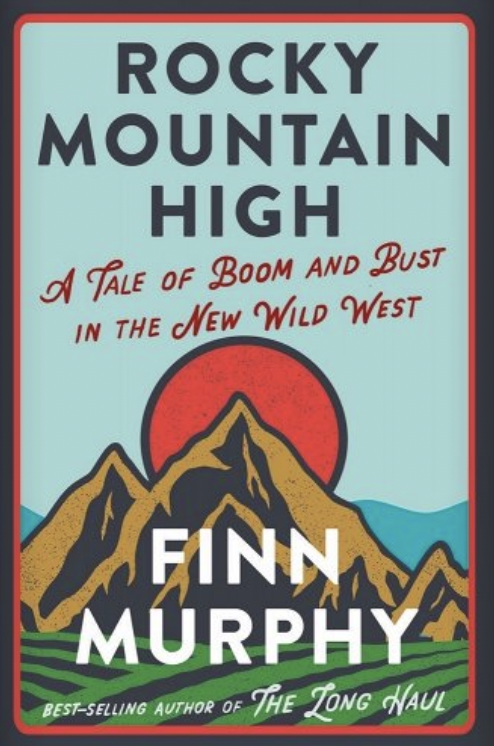
Finn Murphy, Rocky Mountain High: A Tale of Boom and Bust in the New Wild West
W.W. Norton, June 13
One Lit Hub staffer happens to have a brother who was a long-haul trucker, and a trio of cousins who spent a decade farming hemp, so it’s not a stretch to say that Finn Murphy’s new memoir of shifting careers from trucker to hemp farmer feels written for him. You may know Murphy from his first book, The Long Haul, a very personal (and funny) driver’s side account of his three decades crisscrossing America in an 18-wheeler. Rocky Mountain High is something like a sequel, and tells the story of Murphy’s decision to settle in Colorado to try his hand at hemp farming, a career move that doesn’t exactly pan out as he’d hoped. With customary wit and candor, and a keen eye for characters (who go beyond plot-moving cut-outs), Murphy offers a charming portrait of the modern day hemp farming hustle. We need more first-hand accounts like this, of what it means to make a living in 21st-century America.
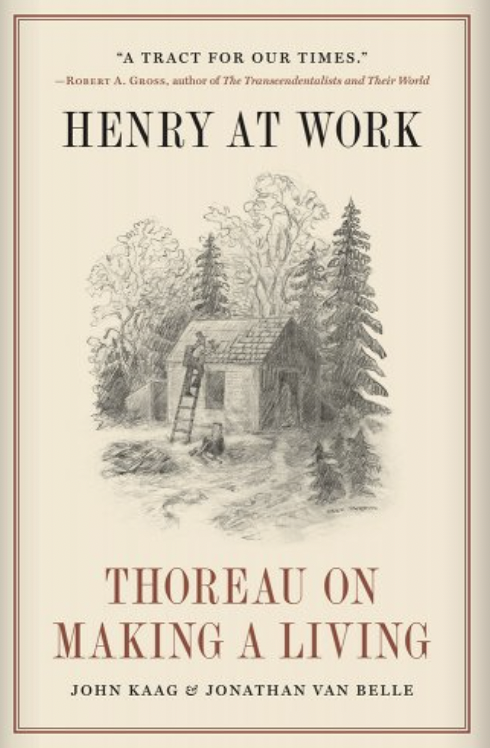
John Kaag and Jonathan van Belle, Henry at Work: Thoreau on Making a Living
Princeton University Press, June 13
It is finally time to move past the idea that Thoreau was a ponderous layabout whose solitary musings were only possible because of behind-the-scenes support staff (his family). The guy worked, and he worked hard. And as philosophers John Kaag and Jonathan van Belle reveal, Thoreau had a lot of thoughts about a lot of different kinds of work: in the factory, on the land, alone, with others, for money, for survival… In a post-Covid moment when society is struggling to define the meaning and purpose of so much of what we call work, Thoreau’s 19th-century ideas about labor are both highly relevant and weirdly prescient.
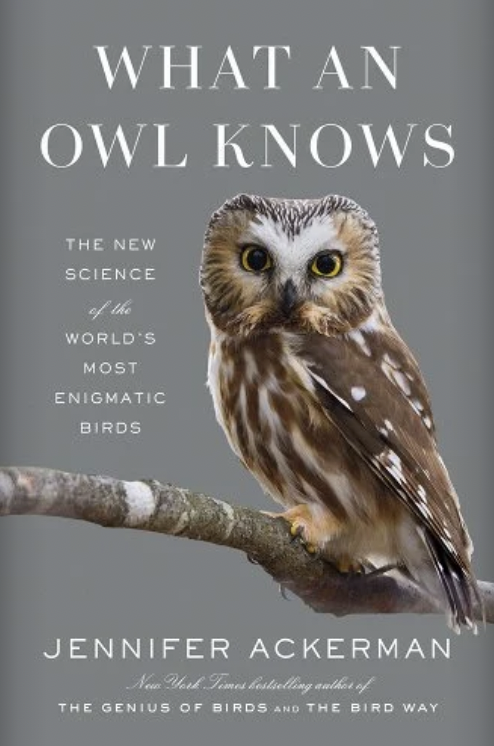
Jennifer Ackerman, What an Owl Knows: The New Science of the World’s Most Enigmatic Birds
Penguin Press
Did you know that owls sometimes perform duets? Yes, those strange, almost alien noises you hear while camping (which can be downright scary) are owls working through material in the form of hoots and squawks, almost as if they know something we don’t… And did you know that owls thrive on every continent except Antarctica? Look, if we had more space we’d ply you with more owl facts, but you’re just going to have to read Jennifer Ackerman’s new definitive account of everything we know about owls (and what they know about us).
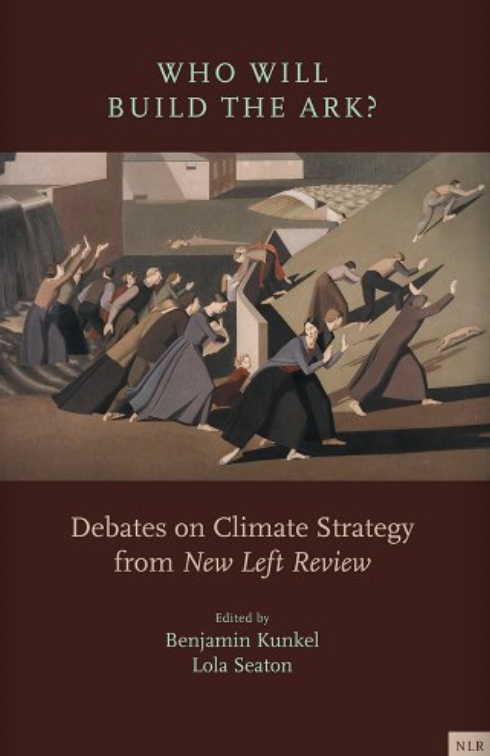
Benjamin Kunkel and Lola Seaton (eds.), Who Will Build the Ark?: Debates on Climate Strategy from New Left Review
Verso, June 27
At a moment when the largest economy in the world can’t even come to terms with its own debt ceiling, how are we to have any faith in mainstream political ideas about mediating the effects of climate change? Who Will Build the Ark, a collection of proposals for seeing humanity through to the other side of late capitalism’s climate crisis, suggests that the only way forward is by making radical change. With essays and ideas culled from The New Left Review—on eco-austerity, steady-state economies, half-earth rewilding, eco-socialism, and more—editors Kunkel and Seaton offer compelling alternatives to increasingly uninspiring status quo solutions.
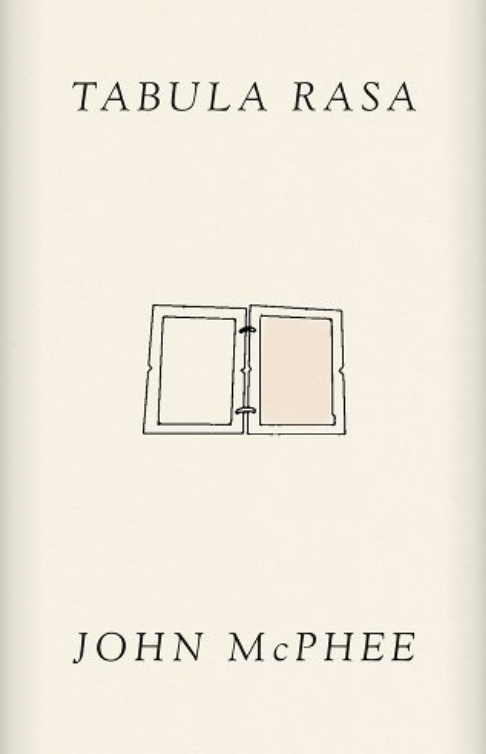
John McPhee, Tabula Rasa (Vol. 1)
FSG, July 11
John McPhee, often heralded as one of our greatest of nonfiction chroniclers (for good reason), has written about what seems like every imaginable topic, from oranges to Alaskan fur trappers to Wimbledon’s legendary Center Court… But what about all the pieces McPhee didn’t write? Serving as something of answer to that question, Tabula Rasa is a charming compendium of McPhee stories in various states of incompletion, the beginnings and sketches of scores of profiles and wanderings that never quite made it to print. Necessary reading for lovers of serious nonfiction.
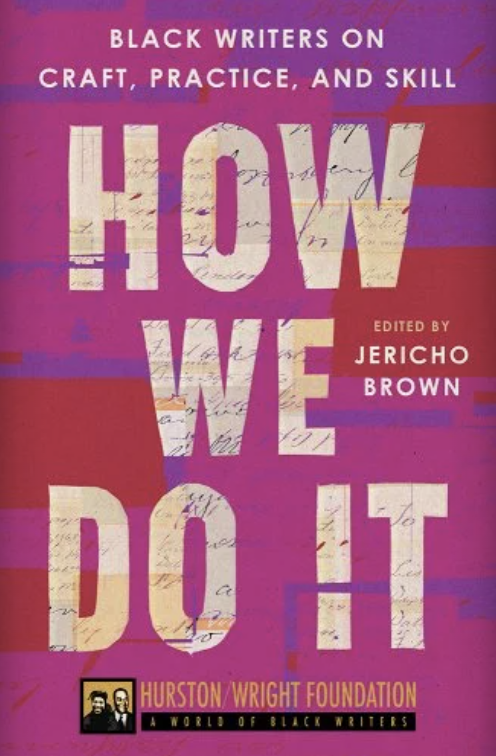
Jericho Brown, How We Do It: Black Writers on Craft, Practice, and Skill
Amistad, July 4
It’s right there in the title. Poet Jericho Brown has assembled an all-star lineup of Black writers holding forth on the nature of their art and how it relates to who they are in the world. With writers like Rita Dove, Camille T. Dungy, W. Ralph Eubanks, Angela Flournoy, Nikki Giovanni, Terrance Hayes, Mitchell S. Jackson, Barry Jenkins, Jamaica Kincaid, Jacqueline Woodson, and many more, this collection is for anyone who’s ever tried to put thought and feeling into words.
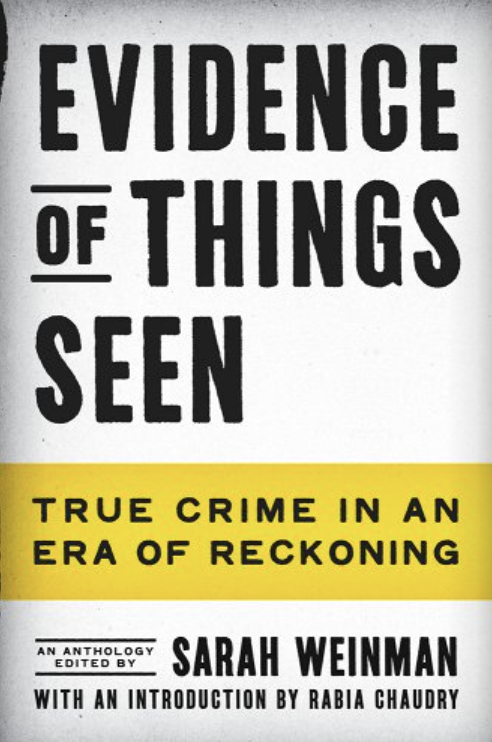
Sarah Weinman, Evidence of Things Seen: True Crime in an Era of Reckoning
Ecco, July 4
The last decade has seen true crime as a genre—be it audio, in print, or on screen—grow into a billion-dollar industry, as demand for digestible, narrativized accounts of humanity’s darker side has proven bottomless. But with money to be made, standards inevitably drop… So how do we distinguish between the exploitative sensationalists and the thoughtful reporters? Luckily we have Sarah Weinman’s new anthology, as good a starting place as any for the best in true crime, featuring writers like Wesley Lowery, Justine van der Leun, May Jeong and more, who get to the bottom of the story without scraping the bottom of the true crime barrel.
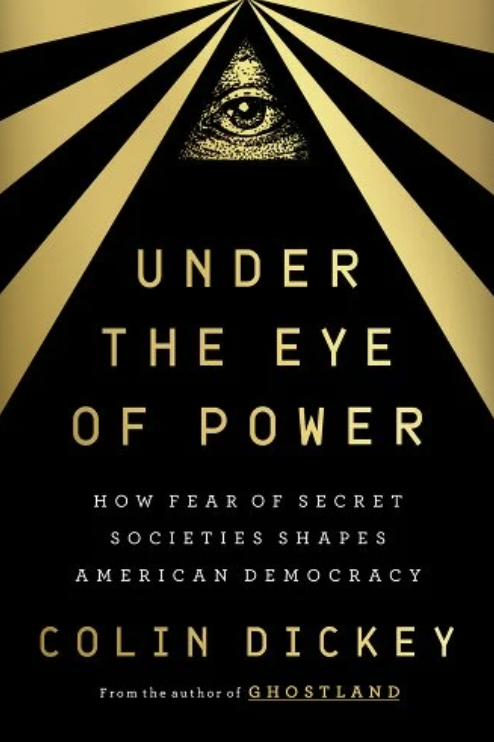
Colin Dickey, Under the Eye of Power: How Fear of Secret Societies Shapes American Democracy
Viking, July 11
We can think of no better writer than Colin Dickey—who has written beautifully for this site—to examine America’s foundational obsession with conspiracy. From Salem to John Birch to Pizzagate, the “paranoid style” has been a part of this country’s identity long before it was given name by John Hofstadter in 1964. But what are we to do when people would rather ascribe their ill fortune to shadowy cabals of powerful puppet masters than the randomness of the universe? For Dickey, the first step is admitting we have a problem.
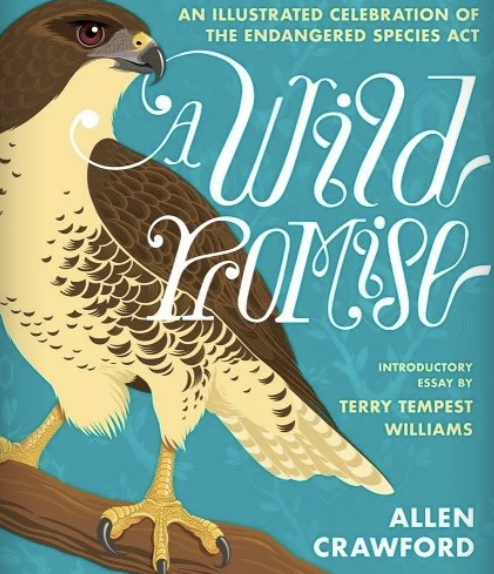
Allen Crawford and Terry Tempest Williams, A Wild Promise: An Illustrated Celebration of The Endangered Species Act
Tin House, July 11
One of the more frustrating aspects of our slow and inevitable descent into climate catastrophe is that we actually know what we need to do. The solutions are there. Take, for example, the Endangered Species Act of 1973, a groundbreaking piece of bipartisan legislation that finally recognized the immeasurable harm humans were causing to the natural world, and began to take seriously the need to protect the most vulnerable species and their habitat. As Wild Promise reveals—through artist Allen Crawford’s beautiful renderings of over 80 animals, withy text by the great Terry Tempest Williams—we have it in us to save the world, we just have to do it.
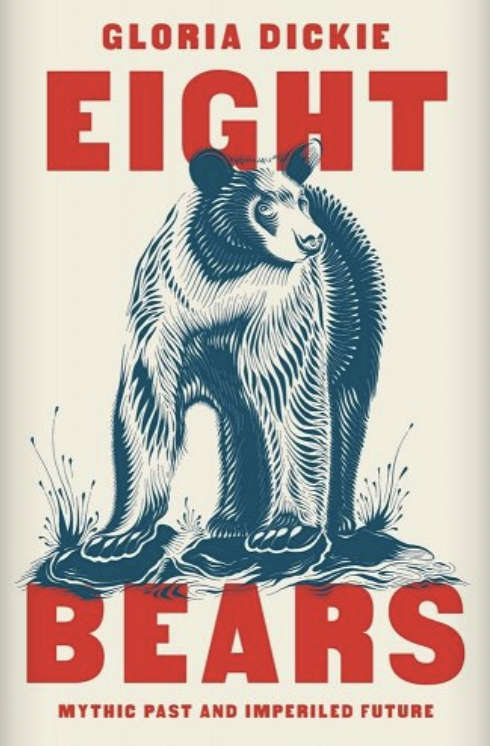
Gloria Dickie, Eight Bears: Mythic Past and Imperiled Future
W.W. Norton, July 11
How many of the eight extant bear species can you name? The first four aren’t all that hard (think about it), but unless you know, the last four are… tough. Give up? Sorry, you’re just going to have to read nature writer Gloria Dickie’s sprawling travelogue about ursine life on planet earth. Not only does Dickie go in-depth on the latest efforts to save habitat for the eight species, she unpacks the history of each species in relation to humans, from myth to fairy tale to urban legend. As both ecological wake-up call and cultural deep dive, Eight Bears is an important document of what we have, and what we stand to lose. (Ok, fine: Polar, Panda, Black, Brown, and… Asiatic Black, Spectacled, Sloth, Sun.)
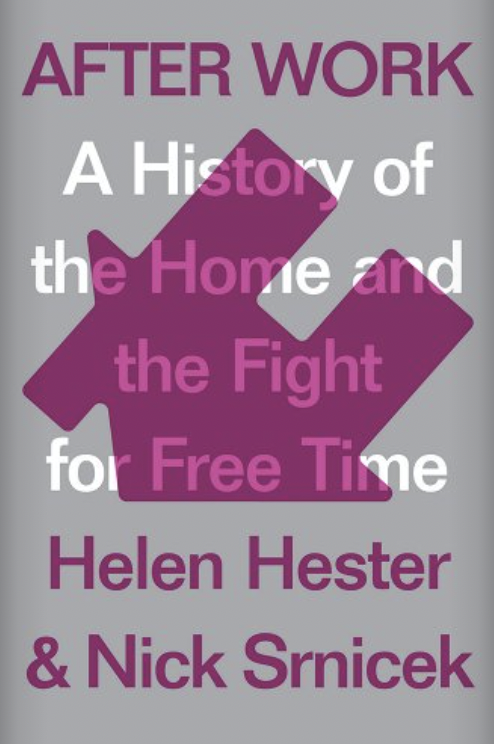
Helen Hester and Nick Srnicek, After Work: The Fight for Free Time
Verso, July 18
Bookstore shelves are veritably sagging under the weight of corporate-inflected, tech-centric self-help guides to maximizing time or reclaiming time or saving time… But why? What are we doing with all that extra time? This is one of the many questions pondered by Helen Hester and Nick Srnicek in their forthcoming treatise on the nature of so-called free time, particularly as it relates to what we do at home when we’re not working. Obviously, this equation has changed radically in the last few years with the remote work revolution, but Hester and Srnicek take things much further back, looking at the last century of domestic existence, and how the maintenance of the house has become a second job for most of us. The ultimate question, though, that After Work seeks to answer, is how do we change that?
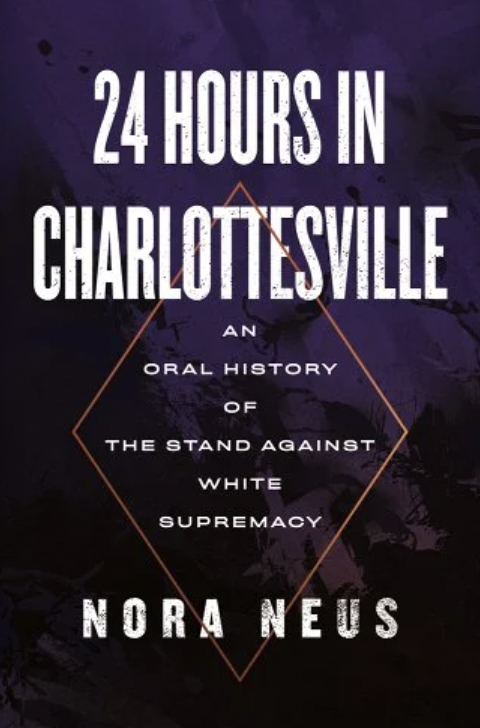
Nora Neus, 24 Hours in Charlottesville: An Oral History of the Stand Against White Supremacy
Beacon Press, July 18
We seem to live in an era of great forgetting. Events that would have been era-defining 20 years ago now come and go like so many digital headlines, explained away by conspiracy theorists and ideological denialists as just more fake news. That’s why books like Nora Neus’s 24 Hours in Charlottesville are so important, particularly as the very history we teach in public schools is at risk of disappearing altogether. So, a reminder: in August of 2017 a horde (a khaki? a basement? a whine?) of neo-Nazis descended on Charlottesville, Virginia to chant racist slogans and buy out the local tiki torch supplier. But for all their deeply embarrassing posturing, the weekend was no joke: As Neus’s gripping account reminds us, based as it is on multiple first-person accounts, the events of that weekend led up to the tragic murder of anti-racist activist Heather Heyer at the hands of an unhinged white supremacist. This is America, and we cannot forget it.
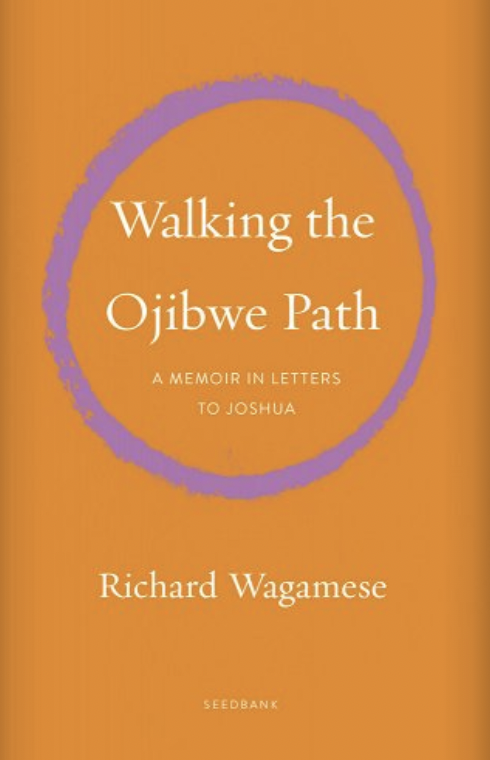
Richard Wagamese, Walking the Ojibwe Path: A Memoir in Letters to Joshua
Milkweed, July 18
The late Richard Wagamese’s 2012 novel, Indian Horse, is one of the great underrated works of fiction of the 21st century (and though its concerns are much broader, it should also be in conversations about the all-time best sports novels). Walking the Ojibwe Path is a collection of letters that Wagamese—who died in 2017—wrote to his estranged six-year-old son, Joshua, in accordance with the Ojibwe tradition that calls fathers to guide their children through the world. For Wagamese, that means being open and honest about his own troubled path through life, from being separated at an early age from his family, to struggles with substance abuse, to incarceration, to his eventual rebirth as the teller of his own story. There are lessons in this book for all of us.
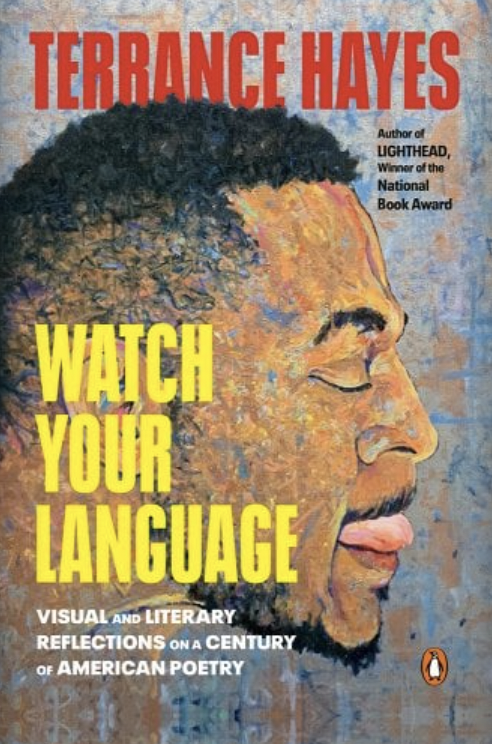
Terrance Hayes, Watch Your Language: Visual and Literary Reflections on a Century of American Poetry
Penguin Books, July 25
When one of America’s great poets assembles his poetic origin story in a collage-like collection of mini essays, illustrations, prose fragments, and assorted feuilletons of a life in poetry, it behooves us all to pay attention. In examining his own path to poetry, Terrance Hayes also manages to excavate a century of nearly forgotten African American poets, reminding us all of the very narrow poetic canon that predominates to this day in the academy. Essential reading.
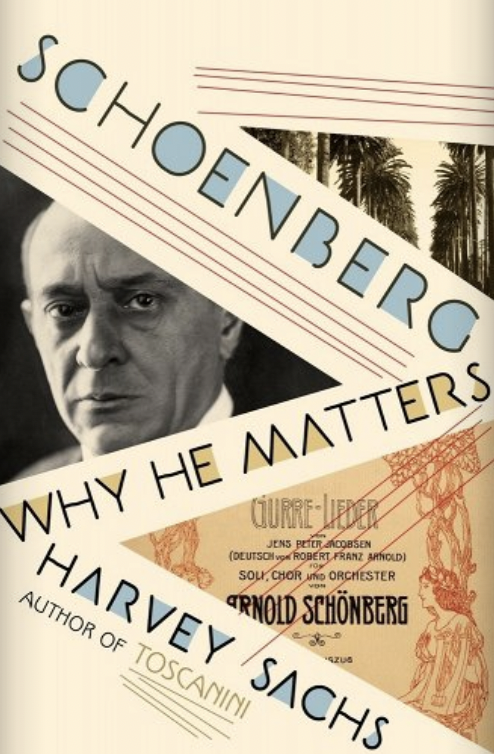
Harvey Sachs, Schoenberg: Why He Matters
Liveright, July 25
Arnold Schoenberg is not an easy listen. The frowny father of the 12-tone musical system revolutionized so-called classical music with his complex, superficially dissonant compositions. Schoenberg caused an enormous stir in the 1920s with his studies in atonality, music that put the burden on audiences to think through what they were listening to. But as a Viennese Jew, his angular compositions were readily labeled degenerate by the Nazis, and Schoenberg soon made his way to America where as a teacher and composer he would have a huge influence on a generation of post-war avant garde musicians. But as Harvey Sachs recounts, Schoenberg’s music gradually fell out of style, to a point where it’s hardly ever performed—and for Sachs, that’s a problem. Why He Matters makes the case for Schoenberg’s importance in the avant garde canon, arguing that anyone who cares about 20th-century classical music needs to care about Arnold Schoenberg.
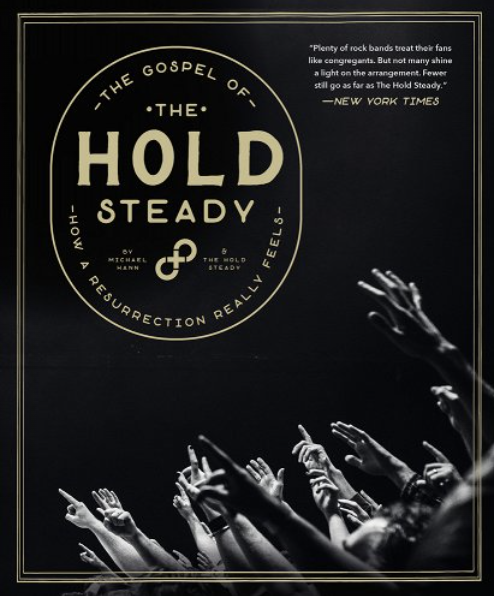
Michael Hann, The Hold Steady, The Gospel of The Hold Steady: How a Resurrection Really Feels
Akashic Books, July 25
There’s a very short list of contemporary American songwriters who would also make wonderful short story writers and The Hold Steady’s Craig Finn is on it. As virtuosic chroniclers of a Midwestern demimonde that gives lie to the pervasive myth of the wholesome heartland, The Hold Steady has earned its place as one of the great American rock bands of the 21st century. And now, in The Gospel of The Hold Steady, the storytellers will have their story told, through essays, firsthand oral histories, and over 200 photographs. A must-have for both Hold Steady diehards and rock and roll fans of all persuasions.
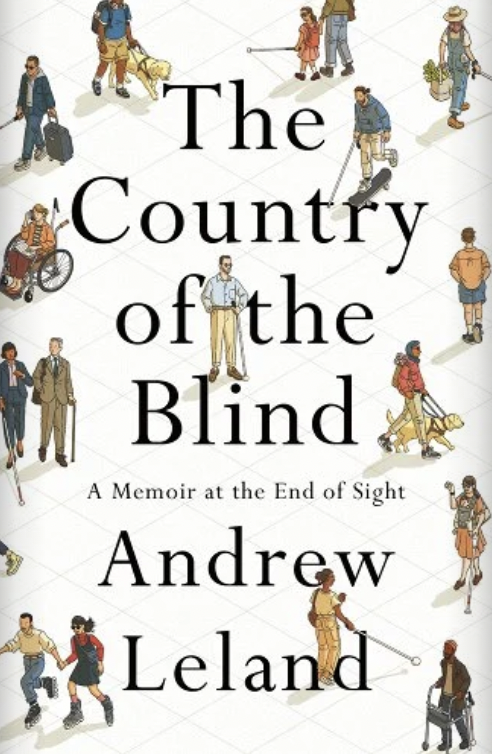
Andrew Leland, The Country of the Blind: A Memoir at the End of Sight
Penguin Press, July 25
As a teenager, Andrew Leland was diagnosed with retinitis pigmentosa, a rare eye disease that results in progressive vision loss over the course of years or decades. Now, at midlife, Leland embarks on a journey to understand the cultural history of blindness and where he fits into it. What follows is a moving and fascinating account of the blind community—its politics, customs, and pioneers—and a personal exploration of making a sometimes frightening, sometimes invigorating life transition as a writer, husband, and father. A brilliant investigative memoir written with humor and heart.
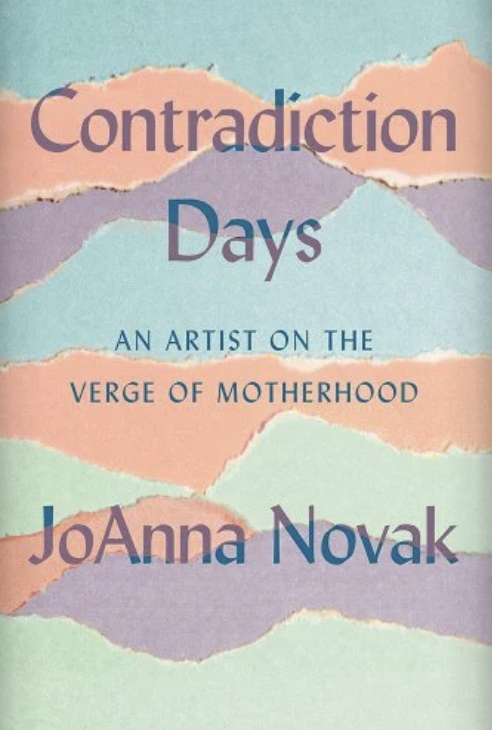
JoAnna Novak, Contradiction Days: An Artist on the Verge of Motherhood
Catapult, July 25
We’re big fans here at Lit Hub of JoAnna Novak’s poetry, which is intense, often unexpectedly discursive, and most certainly always unflinching. It is this last quality that Novak brings to bear on her memoir, Contradiction Days, in which she recounts a harrowing month midway through her pregnancy when, appalled by her doctor’s reaction to her depression, she instead looks to the artist Agnes Martin to help navigate the darkness. And by look, we mean mirror, as Novak heads to Taos to live as Martin did: no phone, no email, no contact with her husband, total solitude. What follows for Novak is a series of revelations about her work, her body, and what it is to be both artist and mother.
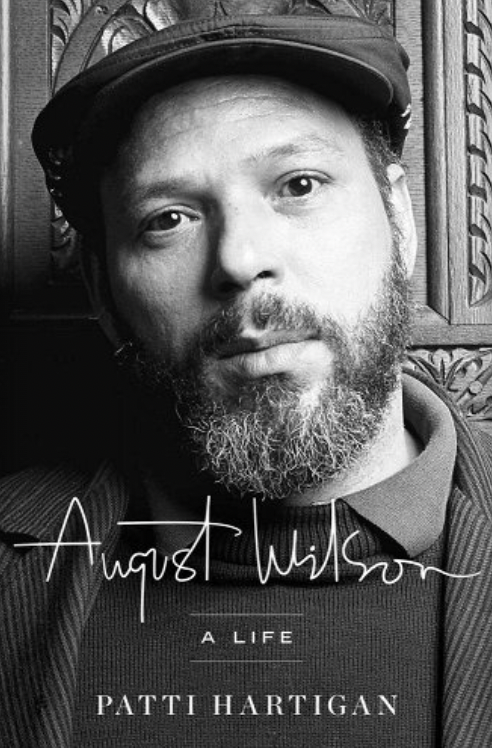
Patti Hartigan, August Wilson: A Life
Simon & Schuster, August 15
August Wilson died far too young in 2005, at just 60 years of age. It has also been far too long for us to get a definitive biography of one America’s finest playwrights, whose chronicles of Black life in 20th-century Pittsburgh will be read and performed well into the 22nd century. Biographer and theater critic Patti Hartigan interviewed Wilson many times when he was alive, and has supplemented that material by talking to those closest to Wilson about his life, his art, and the immeasurable influence he has had on both Black culture and the broader world of the American stage.
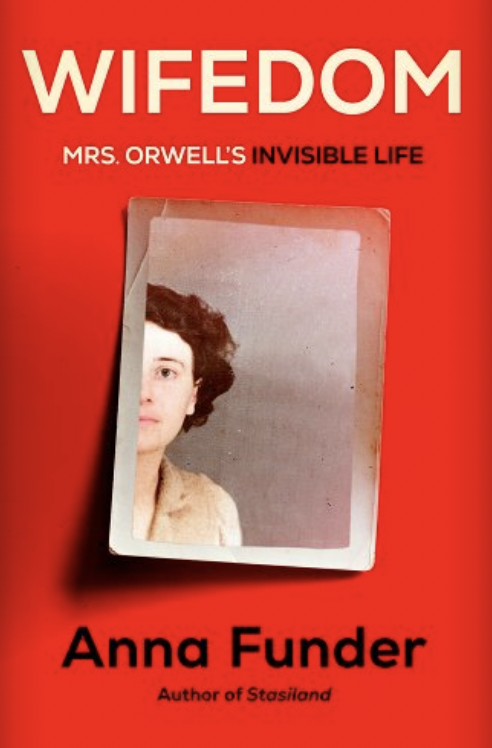
Anna Funder, Wifedom: Mrs. Orwell’s Invisible Life
Knopf, August 22
Ah, the life of the literary spouse, typing up manuscripts, making tea, doing laundry, scrubbing solecisms… Such was the lot of the likes of Vera Nabokov, Sophia Tolstaya, Valerie Eliot (and, sure, let’s add Leonard Woolf in there for a little variety). But until now no one has had much to say about Eileen O’Shaughnessy, a writer who married another writer, George Orwell, in 1936. As Anna Funder reveals in her genre-bending biography of the hitherto forgotten O’Shaughnessy, the Orwells’ was a marriage of literary equals, as George relied on Eileen for much, much more than afternoon tea.
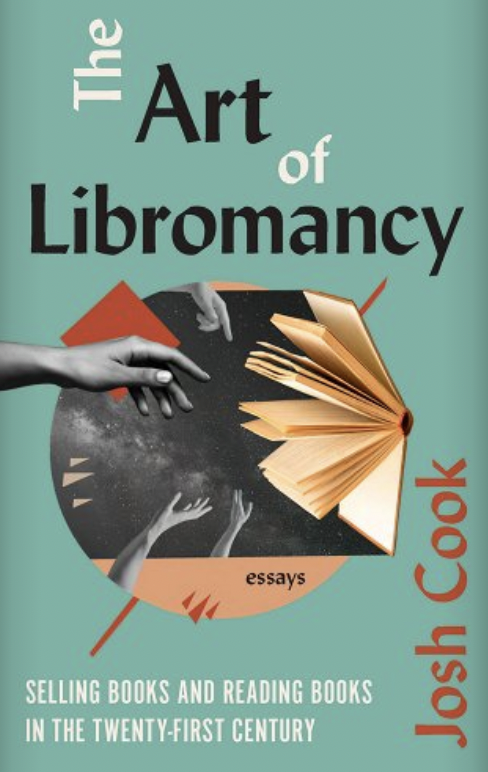
Josh Cook, The Art of Libromancy: On Selling Books and Reading Books in the Twenty-first Century
Biblioasis, August 22
In a society awash in political misinformation, corporate consolidation, government book banning, and endless algorithmic distraction, can we all agree that independent bookstores are more important than ever? Yes, sure, but what’s it like to sell books amidst the aforementioned crazy times? With The Art of Libromancy, bookseller Josh Cook at once soberly enumerates the ever-present risks faced by small bookstores while also maintaining a healthy optimism about the joys and possibilities of the profession. It is a hopeful act to open a bookstore, Cook seems to suggest, and it is only that kind of hope that we’ll see us through this mess.
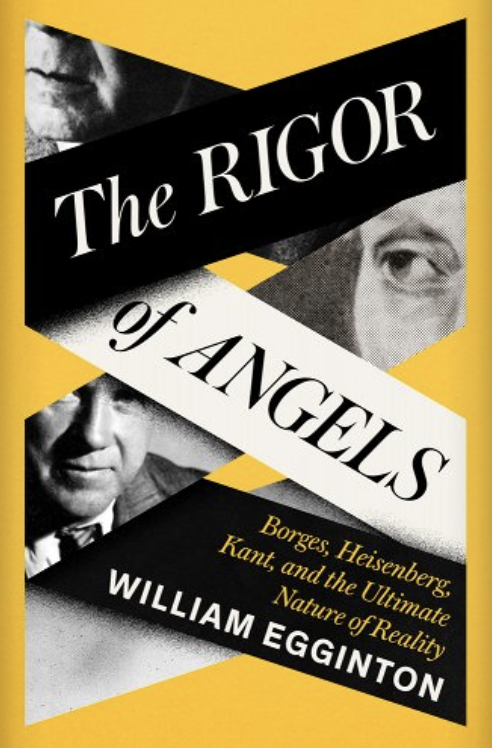
William Egginton, The Rigor of Angels: Borges, Heisenberg, Kant, and the Ultimate Nature of Reality
Pantheon, August 29
If forced to read just one of the titular thinkers in William Egginton’s lively intellectual history, the obvious answer would be Borges, whose prismatic erudition never drifted too far into the opacity (or prolixity, if we’re being honest) of Kant. And to his credit, Heisenberg, whose mathematical divinations—at least for some—straddled the line between physics and philosophy, wrote a perfectly accessible memoir, and had a way with a good soundbite. But what do these three have in common? For Egginton, each in their way—the poet, the physicist, and the philosopher—grappled with the fundamental disconnect between our interior selves and the reality of the broader world, and did so in sublimely beautiful fashion. As The Rigor of Angels shows, there is still much to be learned from these intellectual giants.
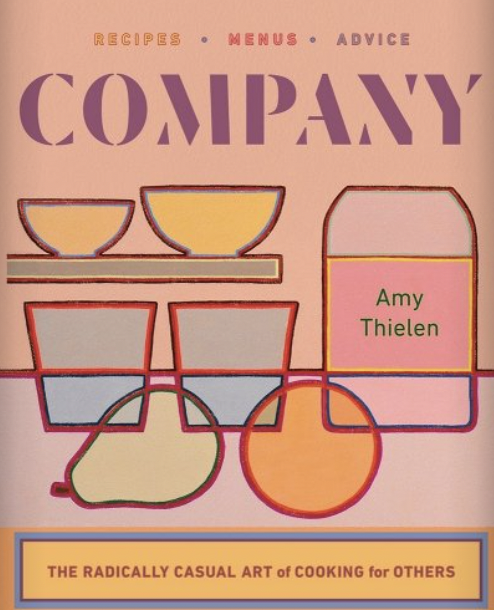
Amy Thielen, Company: The Radically Casual Art of Cooking for Others
W.W. Norton, August 29
Does anyone anywhere ever want to have a Zoom cocktail party ever again? As the Covid pandemic recedes, and people begin to gather again in each other’s homes, some of us might need a refresher course in the fine art of the dinner party. Who better than Amy Thielen, the James Beard award-winning author of The New Midwestern Table (a modern classic of farm-to-table comfort food) to remind us that a good dinner party is less about the food than it is about the spirit of family—chosen or otherwise—that we all need in our lives.












